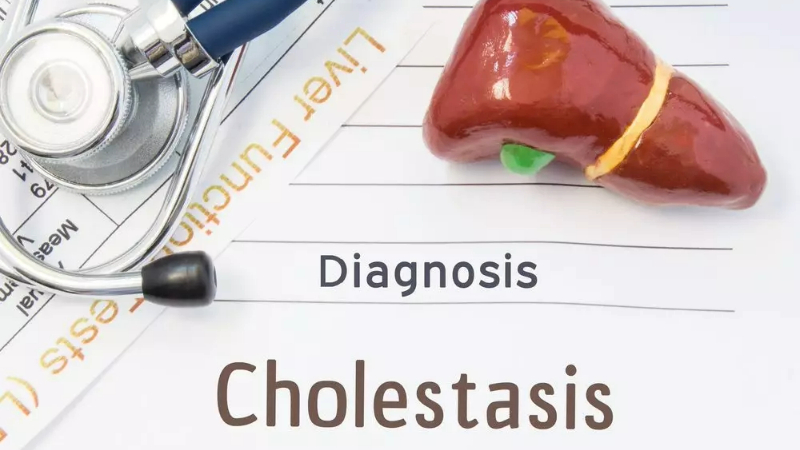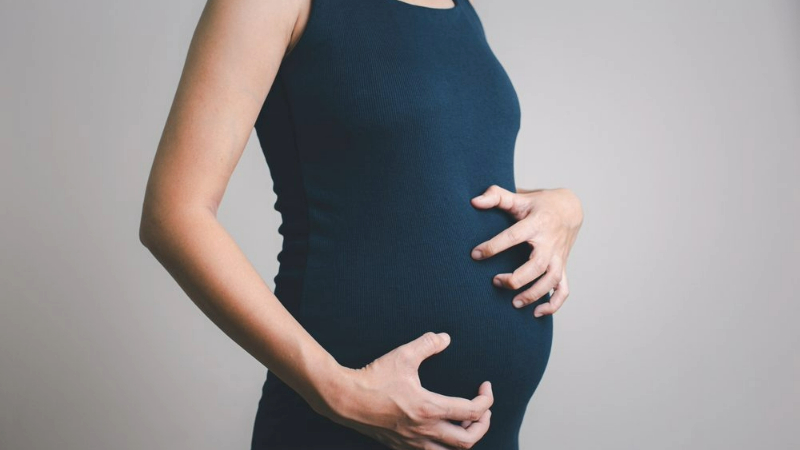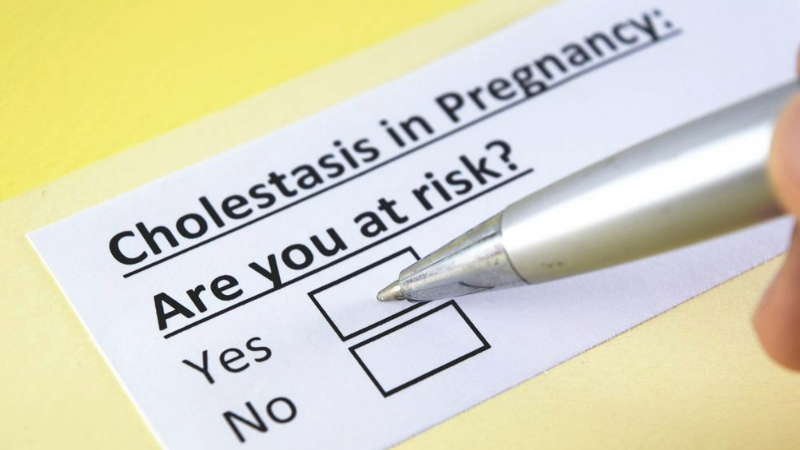
Itching during pregnancy is not unheard of. But are you experiencing severe itching in your pregnancy? This could be more than just blood rushing through your body to support the growing baby. This severe itching you are suffering from could be a cholestasis of pregnancy.
Cholestasis of pregnancy is severe itching during pregnancy. It is also known as obstetric cholestasis or intrahepatic cholestasis of pregnancy (ICP). This is a temporary health issue experienced by pregnant women, mostly in the later stages of their pregnancy.
What is Cholestasis of Pregnancy?
Cholestasis of pregnancy is a liver problem. Your liver produces bile to digest the foods you eat. This bile is stored in your gallbladder. However, during pregnancy, numerous hormonal changes can cause a change in the way your gallbladder works.
When the gallbladder does not store the bile, all that is produced in your liver stays in the liver. When the liver stores an excess amount of bile, it slowly overflows into your bloodstream, causing complications like cholestasis of pregnancy (1).
Symptoms of Cholestasis Of Pregnancy

While one can itch more than usual while pregnant, all itching need not be cholestasis of pregnancy. Here are some symptoms you can watch out for (2)
- Severe itching that causes discomfort
- The itching can be all over your body but is mostly experienced on the palms of your hands and soles of your feet.
- Stools can change to a lighter color
Some of the uncommon symptoms are (3)
- Yellowing of the skin and eyes like in jaundice
- Stomach pains
- Dark urine
- Loss of appetite
Though these symptoms are common in pregnancy and can be easily confused with other health issues, if you experience severe itching, consult your gynecologist immediately.
How is Cholestasis of Pregnancy Diagnosed?
The diagnosis is done with the help of a blood test. Since itching during pregnancy is common, doctors will ask you to take a blood test and also conduct a physical examination.
If the tests show there could be a problem with the liver or indicate a possibility of cholestasis of pregnancy, the doctor will test the bile level. If it is more than 10 micromoles per liter, your doctor will confirm that you indeed are suffering from cholestasis of pregnancy. (4)
The medical history of the mother-to-be will also be checked to see if this could be hereditary. Moreover, an ultrasound will help understand if there are any issues with the mother’s liver.
Treatment Options For Cholestasis During Pregnancy

Since strong medications cannot be prescribed for a pregnant woman, for the baby’s safety, doctors first try to control the symptoms. When your doctor confirms you are suffering from cholestasis of pregnancy, they might :
- Prescribe anti-itch medications
- Ask you to wear loose and soft clothing
- Apply some topical cream to soothe your itches
These are some natural remedies that can help reduce your itching. If controlling the symptoms does not help, your doctor will opt for Ursodeoxycholic acid (6). This is a medicine that helps improve the functioning of the liver. When your liver starts functioning better, the bile level in your blood will come down, thus reducing your itching, if not stopping it completely.
Your doctor will ask for regular blood tests to keep a check on the bile levels. This can also help them prescribe medication dosage accordingly. If symptoms reduce after a few weeks, your doctor can slowly wean you off the medications.
However, if the bile level does not reduce, then the doctor might opt for the last resort as an increased level of bile in the bloodstream is dangerous for both the mother and the baby.
The last resort is delivering the baby early. If the baby has reached term, the doctor will induce labor or perform a C-Section and deliver the baby (4).
What is the Diet for Cholestasis of Pregnancy?
If you have been diagnosed with cholestasis of pregnancy, you can alter your food intake to help alleviate your condition. Here is a diet you can follow:
1. Drink More Water
This is done to increase urine output so that the excess bile is continuously pumped out of the body
2. Consume Foods Rich in Vitamin K
This makes up for the loss of this vitamin due to cholestasis of pregnancy
3. Reduce Sugar and Sugary Foods Intake
High sugar intake can lead to obesity in children born to pregnant women with cholestasis
4. Reduce Spice Intake
As liver functioning is impaired, digesting such foods can be difficult and can cause acidity
5. Clean Foods
Pesticide usage is on the rise and digesting these unwanted chemicals is a task for your body, especially when the liver is not functioning. Clean or organic foods are expected to be free of such pesticides.
6. Less Acidic Foods
If the bile level is high, consuming acidic foods can worsen the situation. Opt for foods that are less acidic to ensure the stomach acids don’t get out of control.
7. Eat Regularly
Since bile levels are high in your bloodstream during pregnancy’s cholestasis, eating small meals at regular intervals can help. This will keep the stomach acids active and use the bile to digest the food, instead of accumulating and overflowing into your blood.
How Serious is Cholestasis of Pregnancy?
Cholestasis of pregnancy is not a rare health complication. Many women suffer from this condition and still have a very safe, complication-free pregnancy and also give birth to healthy babies. Since cholestasis of pregnancy is a temporary impairment to the functioning of the pregnant woman’s liver, it will subside after delivery.
However, an increase in bile levels in the blood can cause serious complications for both mother and baby. Hence, it is crucial to get it diagnosed and treated as soon as possible.
In some unfortunate cases, cholestasis of pregnancy that was not controlled has even resulted in stillbirth and premature birth, which leads us to our next section.
Does it Affect the Baby?
Unfortunately, if left unchecked, cholestasis of pregnancy can affect your unborn child. The effects on the baby can be:
- Low Birth Weight
- Low (Appearance, Pulse, Grimace, Activity, and Respiration) APGAR score
- Premature Birth
- Immature Lungs
- Stillbirth
Can We Prevent Cholestasis of Pregnancy?
Unfortunately no! Doctors are still trying to find a reason or connection between pregnancy and the cholestasis of pregnancy. Though it is believed to be because of hormonal fluctuations, there is no research to tell us what exactly causes cholestasis in pregnancy. Thus, it is not possible to prevent this health complication during pregnancy. (5)
However, following a healthy and balanced diet, exercising regularly, and getting blood tests done as prescribed can help the pregnant woman to have a healthy pregnancy. Also, natural remedies for cholestasis during pregnancy should be considered. Keeping other issues at bay can make treating cholestasis of pregnancy easier.
Though a common health complication during pregnancy, cholestasis of pregnancy can sound scary to any expecting mother. If your doctor is well experienced and confident about controlling your cholestasis, relax and let them do their job. All the symptoms and discomfort will disappear as early as within 48 hours of delivery. So, do remember to get a medical opinion, a proper diagnosis, and treatment for cholestasis of pregnancy, for a healthy and happy pregnancy.
FAQs
1. How Is Cholestasis Treated In Pregnancy?
We can treat cholestasis in pregnancy using medications, taking sufficient rest, wearing loose clothing, and using anti-itch medicines.
2. How Serious Is Cholestasis?
Cholestasis can cause liver problems for the mother in the future. It can cause preeclampsia, gestational diabetes, or cause problems in the baby like premature birth, and lung issues from breathing in meconium.
3. What To Avoid In Cholestasis?
It is best to avoid sugary foods, processed meats, full-fat dairy products, produce with high levels of pesticides, and undercooked seafood.
4. How Do You Treat Cholestasis?
Topical creams and antiallergens can help with the itching. Different countries use different medications to control the bile levels to ensure it does not cause complications in the pregnancy.
Reference
- Compiled using information from William’s Obstetrics Twenty-Second EdF. Gary, et al, Ch. 50. Cholestasis – https://americanpregnancy.org/healthy-pregnancy/pregnancy-complications/cholestasis-of-pregnancy/
- Walker KF, et al. Pharmacological interventions for treating intrahepatic cholestasis of pregnancy. Cochrane Database of Systematic Reviews. 2020 – https://www.mayoclinic.org/diseases-conditions/cholestasis-of-pregnancy/symptoms-causes/syc-20363257
- Compiled using information from the American Liver Foundation. Intrahepatic Cholestasis of Pregnancy (ICP), National Health Service. Itching and intrahepatic cholestasis of pregnancy: https://my.clevelandclinic.org/health/diseases/17901-cholestasis-of-pregnancy
- Leela Sharath Pillarisetty; Ashish Sharma Midland Memorial / Texas Tech University, Yuma Regional Medical Center – https://www.ncbi.nlm.nih.gov/books/NBK551503/
- Rodrigo Zapata MD, FAASLD, Associate Professor of Medicine, Gastroenterology Department & Liver Unit, University of Chile School of Medicine, Eastern Campus, Hospital Del Salvador. – https://www.worldgastroenterology.org/publications/e-wgn/e-wgn-expert-point-of-view-articles-collection/intrahepatic-cholestasis-of-pregnancy-even-today-a-puzzling-disease-of-pregnancy

